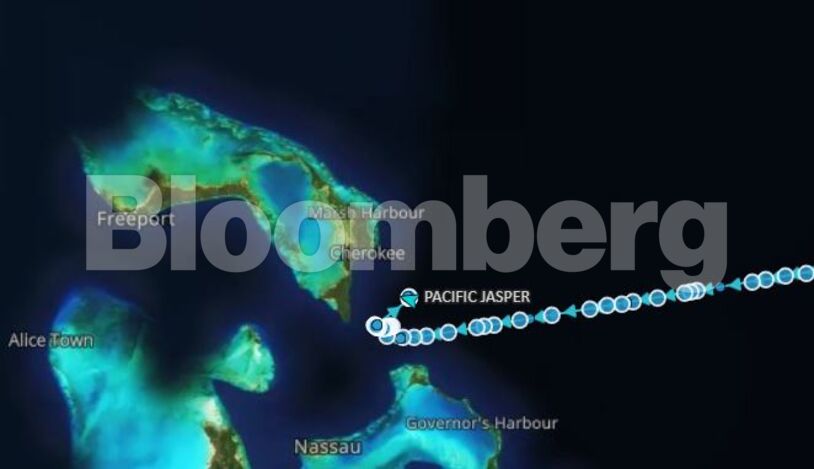With little to no clarity over when the system will return, traders are seeking vessels to deliver gasoline that would have otherwise been shipped on the Colonial system, according to market participants who asked not to be identified because the information isn’t public. Some tankers are being secured to temporarily store gasoline in the U.S. Gulf in the event of a prolonged shutdown, they said.
Colonial halted all operations on its system late Friday after suffering a ransomware attack that affected some of its IT systems.
Colonial is just the latest example of critical infrastructure being targeted by ransomware. Hackers are increasingly attempting to infiltrate essential services such as electric grids and hospitals. The escalating threats prompted the White House to respond last month with a plan to increase security at utilities and their suppliers. Pipelines are a specific concern because of the central role they play in the U.S. economy.
“It’s an all-hands-on-deck effort right now,” U.S. Commerce Secretary Gina Raimondo said of federal government actions as the shutdown drags on. “We are working closely with the company, state and local officials to make sure that they get back up to normal operations as quickly as possible and there aren’t disruptions in supply.”
The White House pulled together an inter-agency task force to address the breach, including exploring options for lessening its impact, according to an official. President Joe Biden can invoke an array of emergency powers to ensure supplies keep flowing to big cities and airports along the East Coast.
Rules Eased
Some rules curbing domestic transportation of fuel have been eased to help deal with any shortages. That doesn’t extend to waiving Jones Act, a measure that would allow foreign tankers to help shuffle more petroleum products between U.S. ports.
“There are ways to get around this,” said Jeff Currie, global head of commodities at Goldman Sachs Group Inc. “Importantly, the Department of Transportation has lifted any restrictions around trucking and boat transportation, which means you can use other avenues of transportation to deal with this.”
Colonial is a major source of gasoline, diesel and jet fuel to the East Coast from the nation’s refining belt along the Gulf Coast. It has the capacity to send about 2.5 million barrels (105 million gallons) a day from Houston as far as North Carolina, and another 900,000 barrels a day to New York.
An ocean-going tanker that had been taking gasoline toward the U.S. Gulf stopped on its voyage and is now stationed east of the Bahamas, data compiled by Bloomberg show. If the halt is prolonged, the fuel is likely to fetch higher premiums in the New York Harbor area.

The attack appeared to use a ransomware group called DarkSide, according to Allan Liska, senior threat analyst at cybersecurity firm Recorded Future. The cybersecurity firm FireEye Inc. said its Mandiant incident response division was assisting with the investigation.
Extortion Fee
Ransomware cases involve hackers seeding networks with malicious software that encrypts the data and leaves the machines locked until the victims pay the extortion fee. This would be the biggest attack of its kind on a U.S. fuel pipeline.
The national gasoline average stood at $2.96 a gallon Friday, according to auto club AAA. With gasoline inventories ample, the pump price wasn’t expected to tick much higher until Memorial Day at the end of May, which is traditionally viewed as the start of the U.S. summer driving season. If the pipeline doesn’t restart soon it will accelerate the move higher.
“I think we’re at strong odds for it by Memorial Day given current trends,” said Patrick De Haan, head of petroleum analysis at Gas Buddy.
A key concern at present is meeting product demand in the U.S. Southeast, which is especially dependent on the Colonial system, people familiar with the situation said. Drivers in landlocked and car-dependent Atlanta may be the first to feel the pinch at the pump.
“Atlanta will be one of the earlier sore spots, along with eastern Tennessee, and perhaps the Carolinas,” De Haan said.
The Northeast can secure gasoline shipments from Europe but it will come at an increasing cost the longer the pipeline stays shut. The fuel’s premium to crude in northwest Europe had jumped by more than 5% in intra-day trading earlier on Monday but was still down week-on-week.
“The longer it lasts, the more bullish it will be for refined products on the East Coast,” said Warren Patterson, head of commodities strategy at ING Groep NV. “This will likely also drag European product prices higher, as we see more waterborne cargoes needing to go into the U.S. East Coast to meet the shortfall.”
Last year, the U.S. imported about 235,000 barrels a day of gasoline from Europe, according to bill of lading and tanker-tracking data compiled by Bloomberg. Stocks of the road fuel in PADD 1 — the U.S. East coast — are below the five-year average, at close to 65 million barrels, according to the latest EIA data.
Airports on the East Coast, which continue to have some of the steepest drops in air traffic due to the pandemic, have been operating smoothly Sunday, according to the flight-tracking website FlightAware.com.
Share This:




 CDN NEWS |
CDN NEWS |  US NEWS
US NEWS 





























COMMENTARY: Trump’s Big Bill Shrinks America’s Energy Future – Cyran